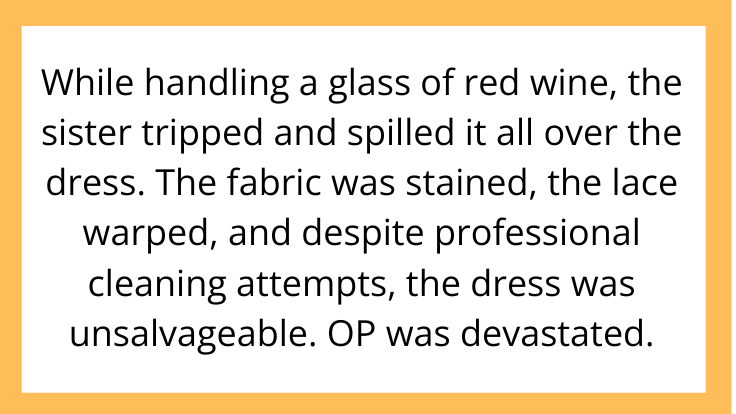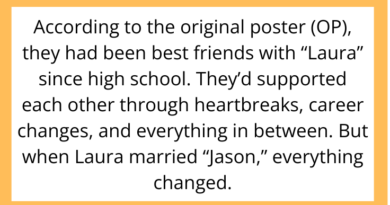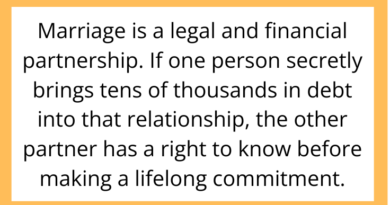Am I the Jerk for Making My Sister Pay for Ruining My Wedding Dress?
Weddings are emotional and expensive events—filled with dreams, expectations, and, unfortunately, drama. When family dynamics clash with once-in-a-lifetime moments, things can spiral quickly. That’s what happened to one Reddit user, whose special day was nearly ruined by a careless sister and a destroyed wedding dress.
This AITAH post explores boundaries, accountability, and whether it’s fair to demand compensation when someone crosses the line during one of the most important days of your life.
The Wedding Disaster That Sparked the Drama

The Original Poster (OP) shared that their wedding was set to be a modest but deeply meaningful event. OP had spent months planning the details, including choosing a delicate, custom-fitted wedding dress that cost over $2,000. The dress held sentimental value as well—it was inspired by their late mother’s own gown.
Days before the wedding, OP hosted a final try-on at home with close family present. The dress was laid out in the living room, freshly steamed and ready. That’s when OP’s younger sister entered the scene.
While handling a glass of red wine, the sister tripped and spilled it all over the dress. The fabric was stained, the lace warped, and despite professional cleaning attempts, the dress was unsalvageable. OP was devastated.
Instead of apologizing profusely, the sister brushed it off as a mistake, saying OP was being dramatic. She refused to contribute financially, claiming accidents happen and “it’s not like she did it on purpose.”
OP decided to send her a bill for half the cost of the dress, saying it was the least she could do. The sister refused—and now OP is being labeled a bridezilla by other family members.
So, OP turned to Reddit with the question: Am I the jerk for asking my sister to pay for the wedding dress she ruined, even if it was an accident?
Accountability and Accidents: Where Do We Draw the Line?
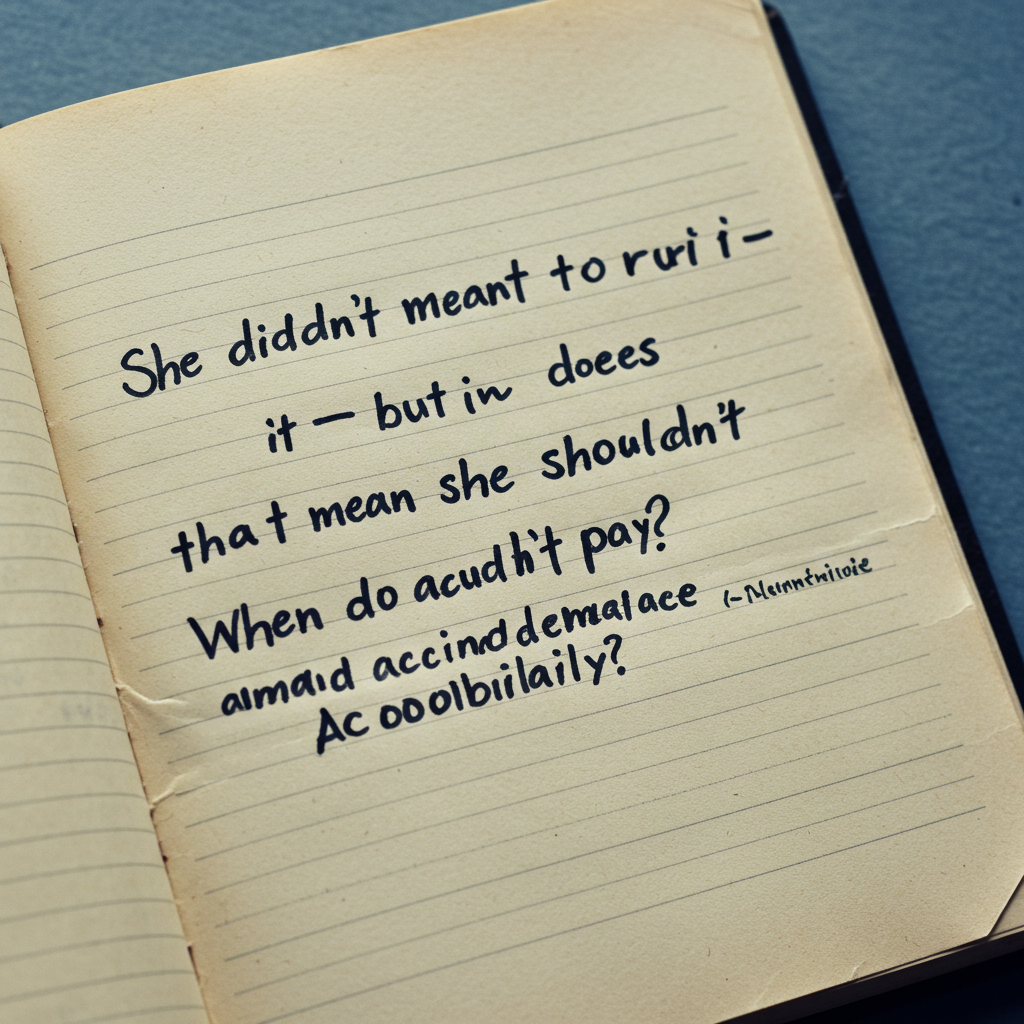
Intent Doesn’t Erase Consequences
One of the core arguments in this situation is whether an unintentional act still requires accountability. Many Reddit users argued that while the act was accidental, the damage was real—and costly.
Think about it: If you break someone’s phone by accident, you still offer to replace it. The same logic applies here. The wedding dress wasn’t just an item—it was a central part of a meaningful day.
Just because the sister didn’t intend harm doesn’t absolve her from responsibility.
Family or Not, Actions Have Consequences
Some commenters pointed out that familial relationships often make people hesitant to ask for compensation. But family ties shouldn’t shield someone from the natural consequences of their behavior—especially when the incident involved carelessness and a lack of remorse.
Had the sister immediately apologized and offered to help, the situation might’ve played out differently. But the refusal to take any responsibility is what turned a tragic accident into a toxic feud.
The Guilt Card: Are You a ‘Bridezilla’ for Setting Boundaries?

Assertiveness Isn’t Selfishness
After OP requested partial payment for the dress, several family members called her a bridezilla. They argued that the wedding was about love, not money, and that she was letting a dress come between sisters.
But setting boundaries isn’t selfish. It’s a necessary part of adult relationships. OP wasn’t demanding full reimbursement—just a shared cost to reflect the damage done.
Calling someone names for calmly setting boundaries is often a way to deflect responsibility and silence them.
Emotional Manipulation Disguised as Family Loyalty
The term “bridezilla” is sometimes used to shame women for asserting control over their own weddings. In this case, OP wasn’t lashing out or creating chaos—she was grieving the loss of an item that carried both emotional and monetary weight.
The sister’s refusal to acknowledge that pain—and the family’s enabling of her behavior—suggests deeper issues about respect and entitlement.
A Teachable Moment: Repair, Responsibility, and Relationships
Could Mediation Help?

Some Reddit users suggested that instead of escalating the issue, OP might consider a mediated conversation with her sister. Not necessarily to force payment, but to express how much the dress meant to her and how deeply the incident affected her.
Sometimes, people react poorly because they feel overwhelmed or cornered. A calm, honest discussion might lead to a change of heart—and maybe even an apology.
When to Cut Losses—and Emotional Ties
On the other hand, if the sister continues to minimize the damage and refuses to take any responsibility, OP is well within her rights to create some emotional distance. Weddings are emotional enough without having to navigate disrespect and dismissal from those closest to you.
Reddit’s consensus? OP is not the jerk.
What the AITAH Community Said
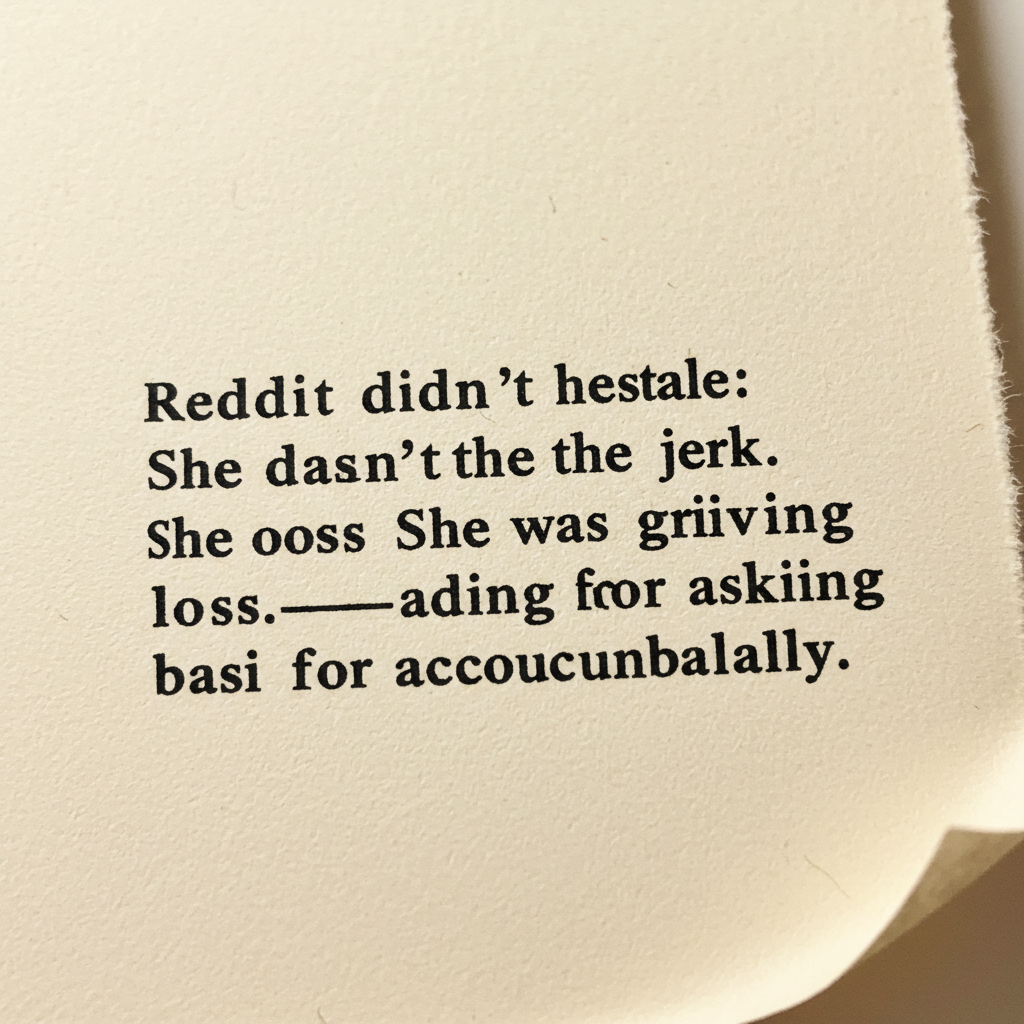
Here are a few standout responses from the AITAH community:
“Accidents still have consequences. If I break something of value, I replace it—even if I didn’t mean to.”
“You’re not being a bridezilla. You’re asking for basic accountability.”
“Your sister is lucky you didn’t ask for the full cost. The fact she won’t even acknowledge her part is the real issue.”
Most commenters agreed that OP was right to ask for compensation, and even more right to question the character of those who quickly turned on her instead of supporting her.
Final Thoughts: It’s Not About the Dress—It’s About Respect
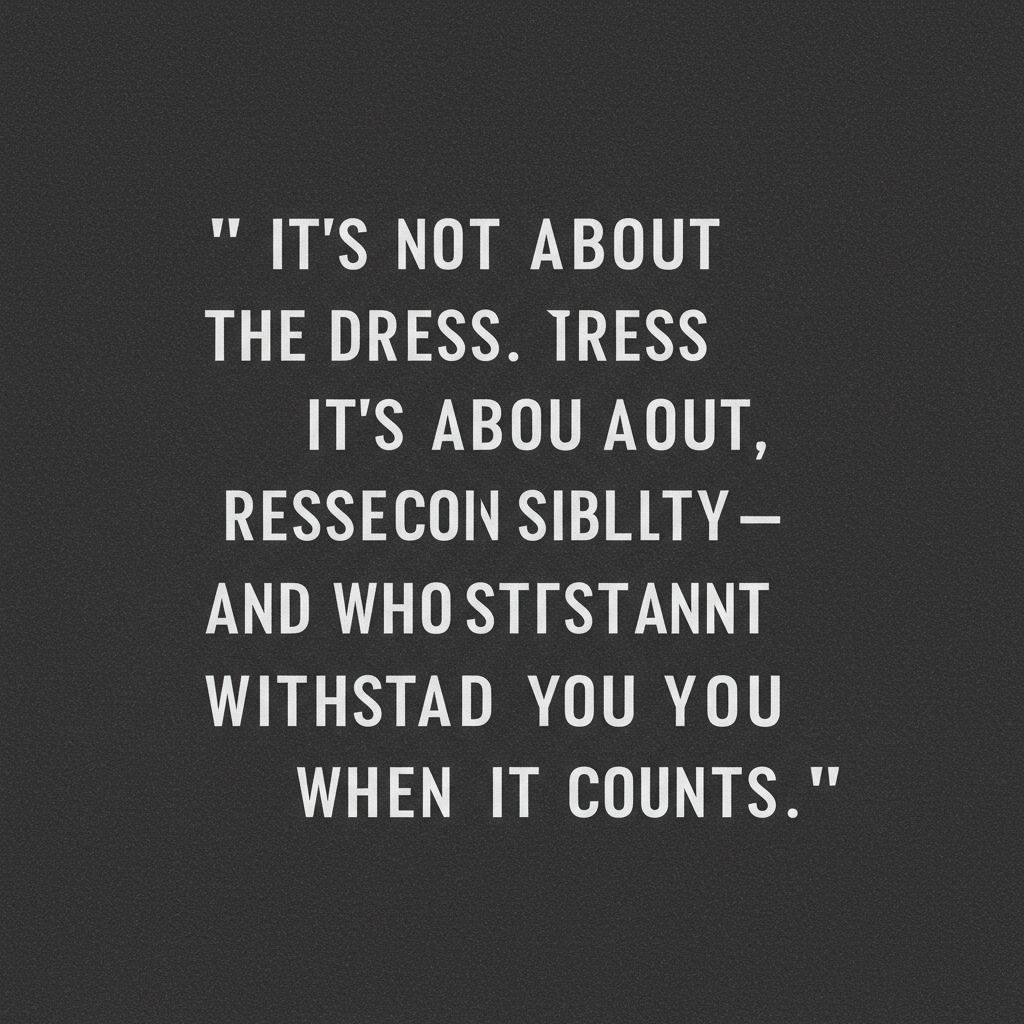
At the heart of this AITAH scenario isn’t just a ruined wedding dress. It’s about what happens when someone causes harm, refuses to own up to it, and then gaslights the injured party for speaking up.
OP wasn’t wrong for asking her sister to share in the cost. She wasn’t wrong for grieving the loss of something important. And she definitely wasn’t wrong for expecting better from her family.
Weddings can bring out the best—or worst—in people. But one thing’s clear: mutual respect and accountability are more valuable than lace, tulle, or embroidery.
